
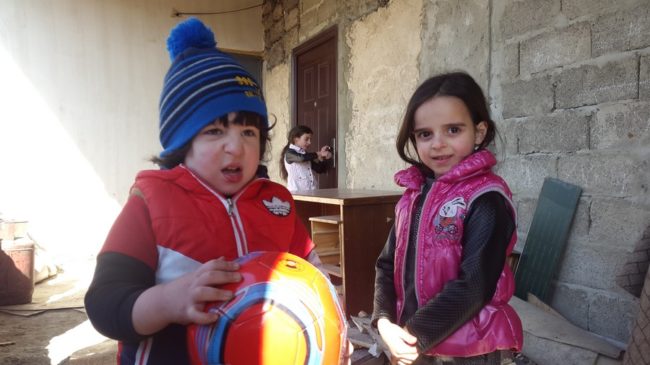
 A lack of running water, electricity, heating, or a sewage system has been blamed for a recent medical emergency involving a newborn in an Abkhazian IDP family. OC Media investigated the living conditions in the settlement.
A lack of running water, electricity, heating, or a sewage system has been blamed for a recent medical emergency involving a newborn in an Abkhazian IDP family. OC Media investigated the living conditions in the settlement.
The six-week-old daughter of a couple living in a settlement for internally displaced persons (IDPs) in Tbilisi has been hospitalised in critical condition. Nino Pipia couldn’t receive necessary daily inhalations due to a lack of electricity in the settlement, according to Elene Khoshtaria, an MP for the opposition European Georgia party, writing on her Facebook page.
The settlement is located in the Nadzaladevi District of Tbilisi, inside a building belonging to a local school. According to one inhabitant, Irakli Butbaia, 34 families live inside the building.
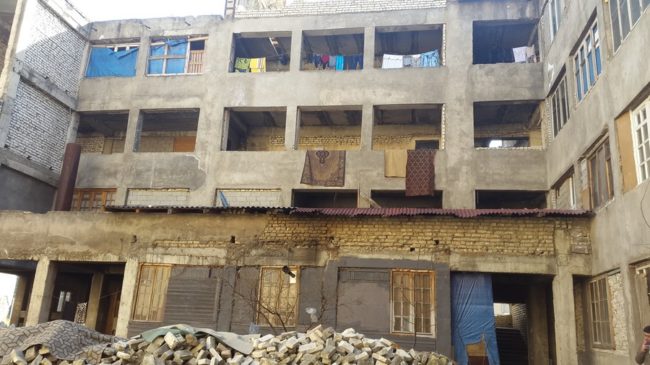
The building is not equipped with running water, gas, electricity, or a sewage system. Sewage is currently disposed of in the building’s basement. The entrance to the basement is blocked, so that children don’t accidentally fall inside.
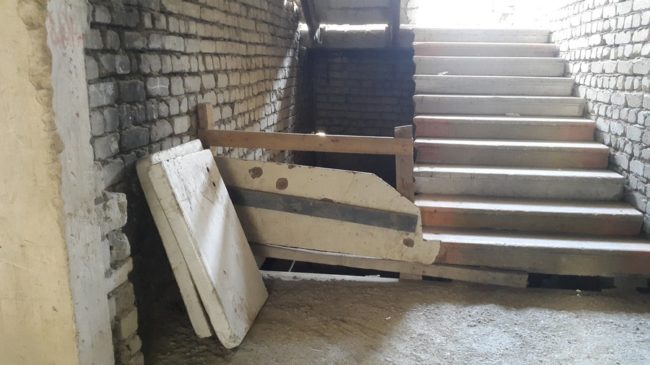
Butbaia came to Tbilisi in 1993, during the war in Abkhazia. He’s been living in the building for six years as he was unable to pay rent elsewhere. He told OC Media that 45 minors live in the building, and they’re fully used to the challenging living environment.
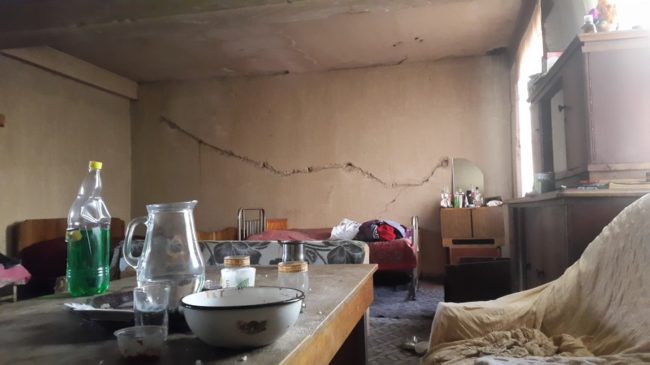
‘We tried everything to sort out the sewage problem. I talked to the school’s director and they gave us the green light to dig [a canal in the yard], but as we started, the police arrived. When we asked why, it turned out that [the school] were actually against it’, Butbaia said.
The IDPs siphon electricity from lampposts. They say that it is the only way not to be dependent on candlelight during the night.
‘In winter, lampposts are switched on around 6 pm, in summer, when the day is longer, they are switched on much later, which is why we have no electricity until very late in the evening. There are several in our group who need to use nebulisers. They have to go to nearby shops to use their electricity, and not every shop allows them to do this’, Butbaia says.
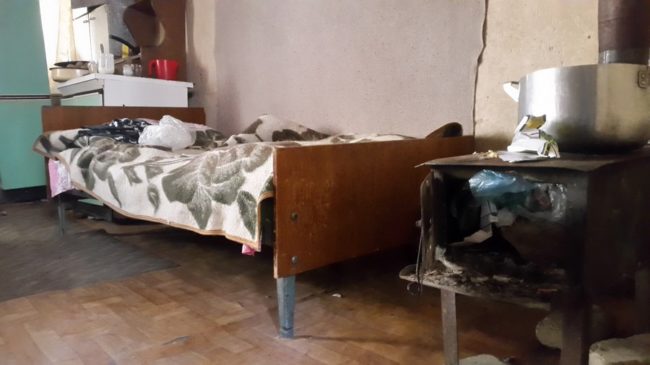
Since there is no heating system in the building, and the electricity is available only intermittently, families can’t use electric heating. Instead, each family regularly travels outside of the city to collect firewood for a wood stove.
Dali Gogoladze, the spokesperson for the Ministry of IDPs, Accommodation, and Refugees told OC Media that since the 2012 parliamentary elections, the IDPs were occupying the building illegally, and if they leave it voluntarily, they will be helped by the Ministry to pay rent elsewhere.
‘The Ministry doesn’t endorse taking over a building belonging to someone else [the school]. These people are registered as living in various regions, but whoever is registered in Tbilisi, in accordance with the law, can apply for a flat. People registered in different regions can apply for flats in their respective regions’, Gogoladze said.
Regarding the state of six-week-old Nino Pipia, the spokesperson said that representatives from the ministry visited the child in hospital, and that one-time assistance will be provided to the child’s family which will include medication.
People registered as IDPs are entitled to financial assistance of ₾45 ($17) a month. According to Georgia’s official statistics office, the minimum amount for subsistence in 2017 is ₾166 ($65).






